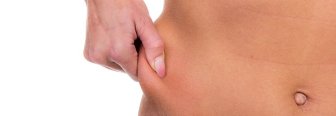
¡Quítate ropa y quema calorías!
26 Nov 2014Cuando hablamos de grasa corporal no siempre es sinónimo de sobrepeso u obesidad. Existe un tipo de grasa denominada marrón o parda, que puede ser beneficiosa en la lucha contra la obesidad. Así lo ha constatado el investigador de la Universidad de Cambridge, Toni Vidal-Puig, junto a las investigadoras del CNIC Mercedes Ricote y Guadalupe Sabio durante la IV conferencia del CNIC (Centro Nacional de Investigaciones Cardiovasculars).
Los científicos afirman que se conocía la existencia de esta grasa marrón en bebés, pero se pensaba que desaparecía al convertirse en adulto, ya que los recién nacidos necesitan producir más calor para mantener su temperatura.
La que conocemos como “grasa mala” o blanca, es la que se almacena producto del exceso de calorías ingeridas. Según el profesor Toni Vidal-Puig si exponemos el cuerpo a bajas temperaturas, el propio organismo es capaz de convertir esa grasa blanca en grasa marrón y, por lo tanto, quemar calorías para producir calor corporal.
El truco está en abrigarnos un poco menos y bajar unos grados la calefacción en invierno. No es cuestión de pasar frío, pero unos grados menos ayudarán a que la grasa blanca se pueda convertir en marrón, puesto que la primera no es capaz de quemar el excedente de calorías por si misma, pero puede llegar a hacerlo si se convierte en grasa marrón por una exposición mayor al frío.
A partir de este descubrimiento, se han hecho ensayos que indican que si se elimina la grasa en forma de calor, este tejido puede llegar a ser beneficioso para reducir la obesidad, ya que se eliminan grandes cantidades de azúcares.
Así, que ahora que ha llegado el frío, puedes bajar unos grados la calefacción para reactivar la conversión de grasa blanca en parda y estarás ayudando a tu cuerpo.





 Músculo
Músculo
 Óseo
Óseo
 Grasa
Grasa
 Caloría
Caloría
 Índice Masa Corporal
Índice Masa Corporal
 Agua
Agua
 Cálculo
Cálculo


